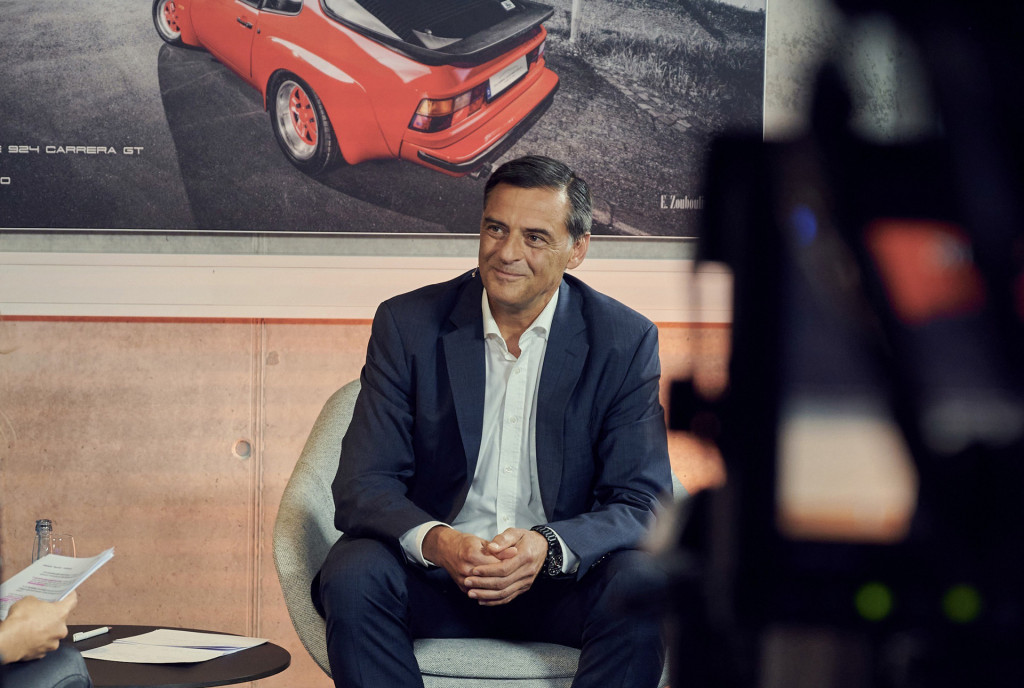Although electric cars are growing in popularity, their internal-combustion counterparts are still going to be around for years to come, especially in developing countries were electric infrastructure is lacking. And the majority of people aren't going to replace their cars overnight, especially owners of classics.
One solution for dealing with the carbon emissions of internal-combustion engines are carbon-neutral synthetic fuels, or eFuels—a name that's growing in popularity. Porsche is the latest to announce its interest in eFuels, following the likes of Audi and McLaren.
“This technology is particularly important because the combustion engine will continue to dominate the automotive world for many years to come,” Michael Steiner, head of R&D at Porsche, said in a statement Wednesday. "If you want to operate the existing fleet in a sustainable manner, eFuels are a fundamental component."
The most common eFuel is oxymethylene ether (OME), which can be generated for gasoline and diesel cars. OME can be produced using CO2 from the air, in a process that combines the CO2 with hydrogen generated from renewable energy sources like wind or solar farms.

Michael Steiner
The resulting fuel can then be distributed using existing infrastructure, and after being used in an engine results in much fewer particulates than conventional fuels as well. The challenge is generating the necessary hydrogen in a manner that makes eFuels commercially viable.
Although it's more efficient to use renewable energy to directly power an electric car, rather than create eFuels which are then fed into internal-combustion engines, which also aren't as efficient as electric motors, for the reasons stated earlier, there are still opportunities for eFuels. Steiner pointed to motorsport as another of these.
Porsche is seeking partners to build pilot plants in order to demonstrate the entire process chain works and can be industrialized. Steiner also said Porsche wants to help establish an industry standard for eFuels so that the fuels offer no disadvantages to conventional fuels, and are developed to be suited for the high-performance engines Porsche builds. This wasn't the case for E10, which hurt its acceptance.
Porsche is still committed to electrification. The automaker expects 50% of its sales by 2025 to be electrified cars, split 40% battery-electric and 10% plug-in hybrid. Fuel cell-electric powertrains aren't on the agenda at Porsche, however.
